- Home
- Degrees
- Postgraduate
- Engineering
- Master of Engineering Management
Master of Engineering Management
Duration
18 - 24 months
10 subjects
Classes commence
| September (Autumn) |
| January (Winter) |
| April (Spring) |
Fees*
AED 9,597.26 / USD 2,615 per subject
*VAT 5% inclusive
The Master of Engineering Management (MEM) offers a comprehensive grounding in management thinking tailored for the engineering and manufacturing sectors, ideal for those aspiring to managerial roles. The program emphasizes the development of creative, analytical, and conceptual skills, empowering students to make strategic judgments across all engineering functions. Graduates will be equipped to collaborate across various disciplines including finance, human resources, and marketing.
Students can tailor their studies with elective subjects in specialised streams (up to 3 subjects) such as Business Analytics, Digital Transformation, Innovation and Entrepreneurship, Supply Chain and Logistics Management, and Engineering Asset Management, choosing up to three subjects that align with their interests.
Given the influx of large-scale engineering projects in the region, there is a growing demand for engineers possessing managerial skills. Our Master of Engineering Management (MEM) degree in Dubai enables graduates to assume managerial roles across diverse engineering disciplines, including chemical, civil, electrical, environmental, industrial, material, mechanical, software, and structural.
Students applying for a master's degree must have completed a bachelor's degree (or equivalent) at an accredited institution of higher education and have achieved the minimum grades outlined below:
| Country | Direct Admission | Probationary Entry* GPA 2.5-2.99 or equivalent |
Conditional Entry** GPA 2.0-2.49 or equivalent |
|---|---|---|---|
| Australia | 65% | 57% | 50% |
| Brazil | 7/10 | 6/10 | 5/10 |
| China | 75% | 63% | 50% |
| Colombia | 3.5/5 | 3.25/5 | 3/5 |
| Egypt | 65% (Good) | 57% | 50% (Pass) |
| India | 50% | 45% | 40% |
| 10 Point System: 7.0/10.0 | 10 Point System: 6.0/10.0 | 10 Point System: 5.0/10.0 | |
| 4 Point System: 3.0/4.0 | 4 Point System: 2.5/4.0 | 4 Point System: 2.0/4.0 | |
| Iran | 14 | 13 | 12 |
| Japan | 70/100 or 4/5 | 65/100 or 3.5/5 | 60/100 or 3/5 |
| Jordan | 70% | 60% | 50% |
| Kenya | 50% | 45% | 40% |
| Lebanon | 11 | 10.5 | 10 |
| Mexico | 8/10 | 7/10 | 6/10 |
| Nepal | 50% | 45% | 40% |
| Nigeria | 50% | 45% | 40% |
| Pakistan | 50% | 45% | 40% |
| Russia | Average of 4 | Average of 3.5 | Average of 3 |
| South Korea | 80/100 | 75/100 | 70/100 |
| UAE | 3 | 2.5 | 2 |
| UK | 2nd Class Honours with lower division (or min 50%) | 45% | Pass (or min 40%) |
| USA | 3 | 2.5 | 2 |
* Applicants with a bachelor’s degree in the relevant field of study, or its equivalent, with an overall GPA between 2.5 and 2.99 (on a 4.0 scale) may be conditionally admitted to a master’s program, only if they meet the necessary English language requirement. Such students must take a maximum of 18cp of subjects studied for the master’s degree during the period of conditional admission and must achieve an overall WAM of 55 in their first 3 subjects at the University. Students who fail to achieve this standard may have their enrolment discontinued.
** Applicants with a bachelor’s degree in the relevant field of study, or its equivalent, with an overall GPA between 2.0 and 2.49 (on a 4.0 scale) may be conditionally admitted to a master’s degree, only if they meet the necessary English language requirement and they will be required to complete a maximum of 18cp remedial non-credit bearing subjects prior to enrolment in their chosen master’s degree. Students must achieve a minimum WAM of 55 in these subjects in order to progress to the Master’s degree or may have their enrolment discontinued.
Note:
[1] Unless otherwise stated, the entry requirements above are based on Section I institutions. Further details on alternate entry requirements can be obtained by contacting the Admissions department.
[2] Applicants for the MEM program are required to have a recognised Bachelor's degree in Engineering.
At UOWD, all classes are taught in English and in order to enrol in a master's degree you will need to submit one of the following certificate of English language proficiency:
| English Language Test | Entry Score |
|---|---|
| IELTS Academic |
Overall score of 6.0 with 6.0 in Reading and Writing and 5.0 in Listening and Speaking |
| TOEFL Internet based |
79 with not less than 20 in Writing, 18 in Reading, 17 in Listening, 16 in Speaking |
| TOEFL Computer based |
213 with a 4.0 TWE/Essay Writing |
| TOEFL* International paper based |
550 with a 4.0 TWE/Essay Writing |
| EmSAT Achieve English |
1400 |
Note: Students who have achieved an overall Academic IELTS score of 6, but with a minimum of 5 in reading and writing for their relevant program, may opt to take Academic Writing as an additional subject during their first semester at an additional fee of AED 1,050/USD 286. A 50% pass rate is required to clear the post enrolment condition. Alternatively, the student may opt to retake the IELTS test.
* Students admitted under this criterion must complete the test at AMIDEAST.
If you are seeking credit for prior learning, you will need to submit an official academic transcripts showing all courses studied and the grades obtained, syllabus details (including information on course content) for the courses you have successfully completed and an explanation of the grading system. Your eligibility for Credit for Prior Learning will be decided in consultation with UOWD's Faculty Offices prior to the beginning of the program.
To make an application for your chosen program, complete the online application form and submit it along with all your supporting documentation (see below) prior to the application deadline.
Late applications may be accepted subject to the availability of places but applicants are encouraged to apply as early as possible.
The following records are required to process your application. Please ensure that all these documents accompany your UOWD application for admission form submittal:
- The original transcripts of your bachelor’s degree results
- A Certificate of Completion
(If the above documents are not in English, a certified English translation is required)
- Proof of your english language proficiency
(Note: Results from IELTS & TOEFL tests must be sent to the University directly from the IELTS or TOEFL testing centres quoting the UOWD institution code IELTS: AE109 / TOEFL: 7907)
- Your current resume or CV
- A copy of your UAE ID card (if applying from within the UAE)
- A copy of your passport (and Residence Visa, if resident in the UAE).
Additionally, if you are seeking advance standing in your chosen program:
- Certified copies of official academic transcripts showing all courses studied and grades obtained, syllabus details (including information on course content) of the courses you successfully completed and an explanation of the grading system.
Applications are required to obtain attestation / equivalency of their bachelor’s degree from the UAE Ministry of Education. The attestation / equivalency process is dependent upon whether you completed your bachelor’s degree within the UAE or outside the UAE.
If the bachelor’s degree was completed outside UAE, you must have your bachelor’s degree and transcripts/mark sheets certified by:
- The issuing University and/or recognised authority for tertiary education in the host country in which you completed your education
- The Ministry of Foreign Affairs in the host country
- The UAE Embassy in that host country OR the Embassy of the host country in UAE must attest the authenticity of the documents and attestations.
Additionally, the UAE Ministry of Education must issue an Equivalency Certificate. Applicants must have a valid UAE residency visa when applying for an Equivalency Certificate. In special cases where complying with conditions (2) and (3) are not feasible, the certificates may be verified against originals by Embassies in the UAE and the UAE Ministry of Foreign Affairs.
If you are unable to secure the Equivalency Certificate(s) as outlined above will be asked to sign a “Consent to Provide Documents” form agreeing to secure the equivalency. You will be permitted to commence your studies at UOWD, but will be given a maximum of one semester to obtain the equivalency certificate(s). UOWD reserves the right to take appropriate action against any applicant who cannot secure the appropriate documentation in this time, which may result in the termination of the student’s enrolment at UOWD.
For more information or assistance on attesting documents from outside UAE, click here.
Program Structure
The Master of Engineering Management comprises of a total of 9 subjects that includes 5 core subjects, 3 elective subjects that preferably are in a stream that permits students to focus on their interests and career aspirations, and the final project.
Students from a three year bachelor's degree or a four year program without a research component will be required to take additional two subjects decided in consultation with the faculty.
Core Subjects
Capstone
Any 900-level subject of at least 18 credit points as approved by the School of Engineering
Engineering Asset management Stream
Digital transformation Stream
Supply Chain & logistics Management Stream
Business Analytics Stream
Innovation and Enterprise Stream
Program Outcomes
The rise in extensive construction projects across the region showcases the demand for engineering management professionals. UOWD's Master of Engineering Management (MEM) students, possessing both technical and managerial expertise, find a multitude of opportunities across various engineering disciplines. Graduates are well-positioned for careers such as Plant Manager, Project Manager, Engineering Supervisor, and Process Engineer, aligning with the region's growing need for multidisciplinary engineering professionals.
Accreditation and Recognition
All degrees at the University of Wollongong in Dubai are accredited by the Commission for Academic Accreditation (CAA) of the UAE Ministry of Education and are licensed by the Knowledge and Human Development Authority (KHDA). In addition, the degree is quality assured by UOW, which is registered with the Tertiary Education Quality and Standards Agency (TEQSA), the national regulator of the higher education sector in Australia.
Students will be issued a UOW Australia degree upon graduation.
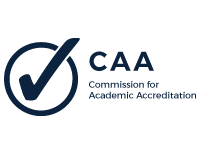
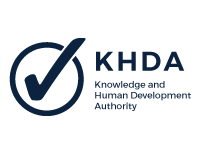
Professional Recognition
Energy Institute (EI)

UOWD is an affiliate of The Energy Institute. The Energy Institute (EI) is the leading professional membership body bringing global energy expertise together, from oil and gas to renewables. The EI connects you to a thriving global community and unlocks access to a broad range of benefits. Becoming a Student Member of the EI will grant you access to resources and opportunities that will not only support you in your studies, but also to further your career development.
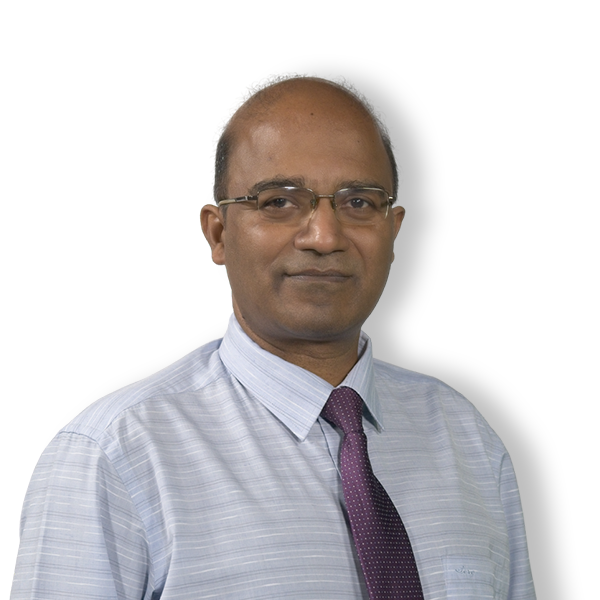
Dr Haile-Selassie Rajamani
Head of School
School of Engineering
Dr Haile-Selassie Rajamani is Associate Professor at the Faculty of Engineering and Information Sciences and currently teaches Signals & Systems and Control Theory to undergraduate and postgraduate students. He has a special interest in Renewable Energy and Power Electronics.
Read MoreFaculty
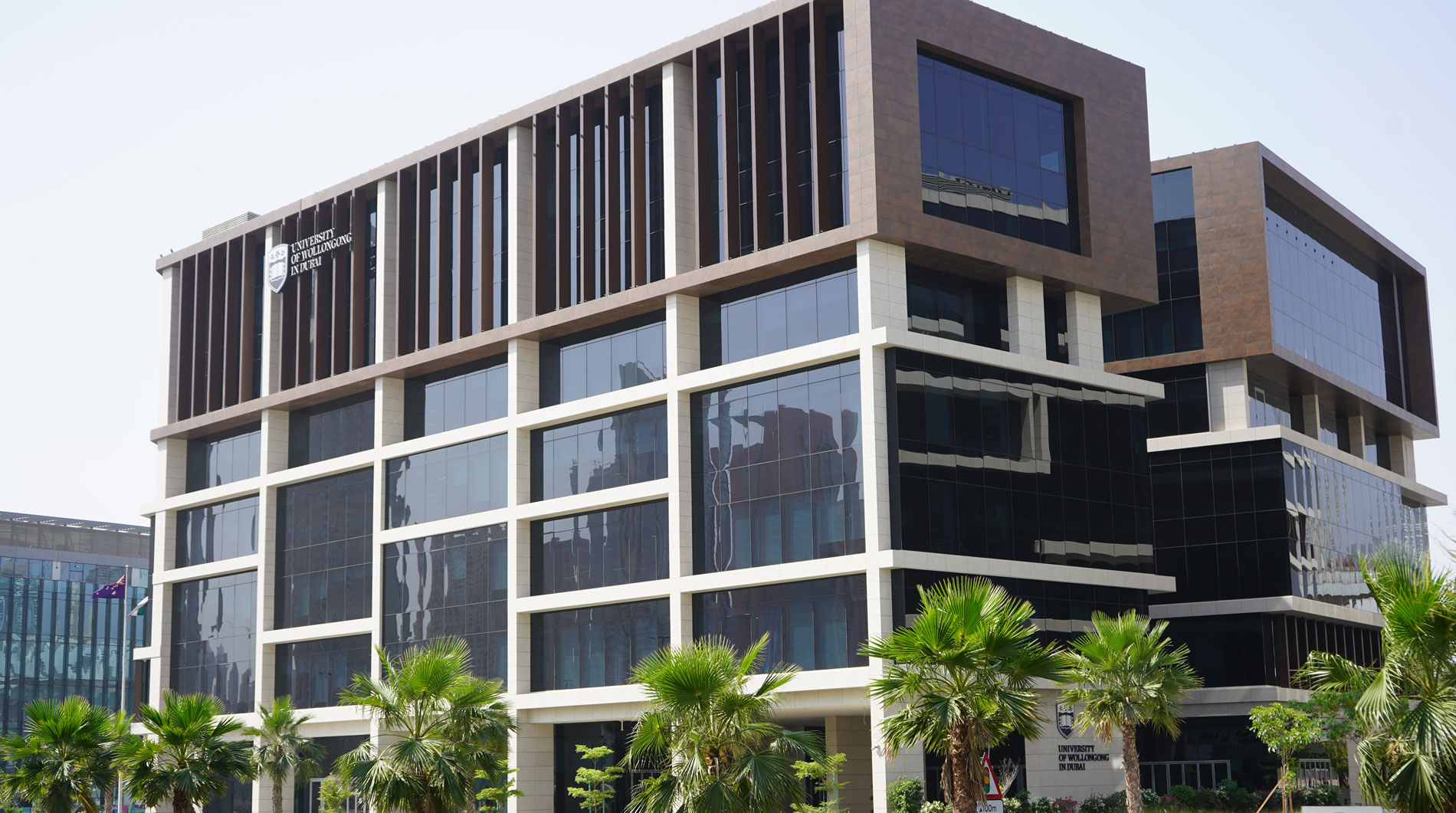
Open Day
Attend our next Open Day on Saturday, 27 April 2024.
Join our experts to learn more about our degrees and how you can enrol at UOWD.



